Diogo Ferreira always knew he wanted to coach. Now, the former Melbourne Victory, Brisbane Roar and Perth Glory utility is making a name for himself as his Western United youth team make waves. He speaks to aleagues.com.au.
In Western United’s post-season Isuzu UTE A-League review, there was a common theme upon reflection and preparation for 2024-25: “Play an attacking brand of football“.
“That was brought up a lot (in the post-season review),” Western United assistant and Under-23 head coach Diogo Ferreira told aleagues.com.au. “We want to put bums on seats, we want people to get excited by the football we play.
“As a club, we want to promote youth and you’ve seen that with the amount of scholarships handed out.”
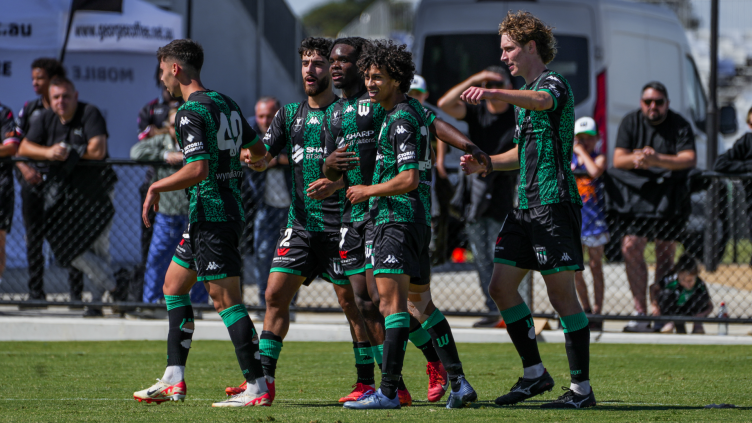
The Isuzu UTE A-League season is done and dusted but Western have already made significant inroads in that department via their senior Academy side – just look at the VPL1 standings.
Led by former Melbourne Victory, Brisbane Roar and Perth Glory utility Ferreira, fourth-placed Western have scored a league-high 61 goals across 19 matches in Victoria’s second tier as they light up the competition. That’s 17 more than leaders Melbourne Victory.
For context, Western scored 44 goals in 26 matches total last term.
2024-25 TRANSFER CENTRE: Your club’s ins & outs
“It helps with the players you have and the boys performing well,” said Ferreira.
“It’s been good because now I’ve had majority of the group for an extra year. Last season we just missed out on promotion but we had the opposite – we weren’t conceding many and not scoring many either.
“I took a bit of a different approach this season where I knew we were lacking goals.
“It was not that I was trying not to concede but having an extra year, having a bit more stability, having showed the work I can do in my first year as head coach, I thought it was time for me to play some more attacking football that I’m more accustomed to and the way I think the game should be played.”

Western, who are four points off the pace, are in the midst of a nine-match unbeaten streak. During that red-hot period, they have scored 33 goals.
The football seen this season is an extension of Ferreira, who has benefited from “time” in 2024.
Last year, he was “restricted” by the fact training had to be done by around 8am because his players had to go to school.
Now, there is “flexibility” as they benefit from the surrounds of their new home in Tarneit, having been spread across three different locations over pre-season.
EXPLAINED: Asia’s new $23m Champions League format as Mariners, Sydney FC chase big payday
“I started playing football because I loved scoring goals,” he said.
“That’s the kind of teams I want to have. You don’t want it as a coach but the old saying as a coach – ‘you concede three but score four’ but in a bit of a better way because you don’t want to concede three goals every week.
“This point last year, I think we have an extra 30 goals compared to last season. I don’t give myself all the credit. Yes I’ve changed some certain things at training but it’s a credit to the players. They’re thriving. I’m allowing more players to get forward at more times. I’m opening up a little bit also which is reflecting in how they’re playing.”
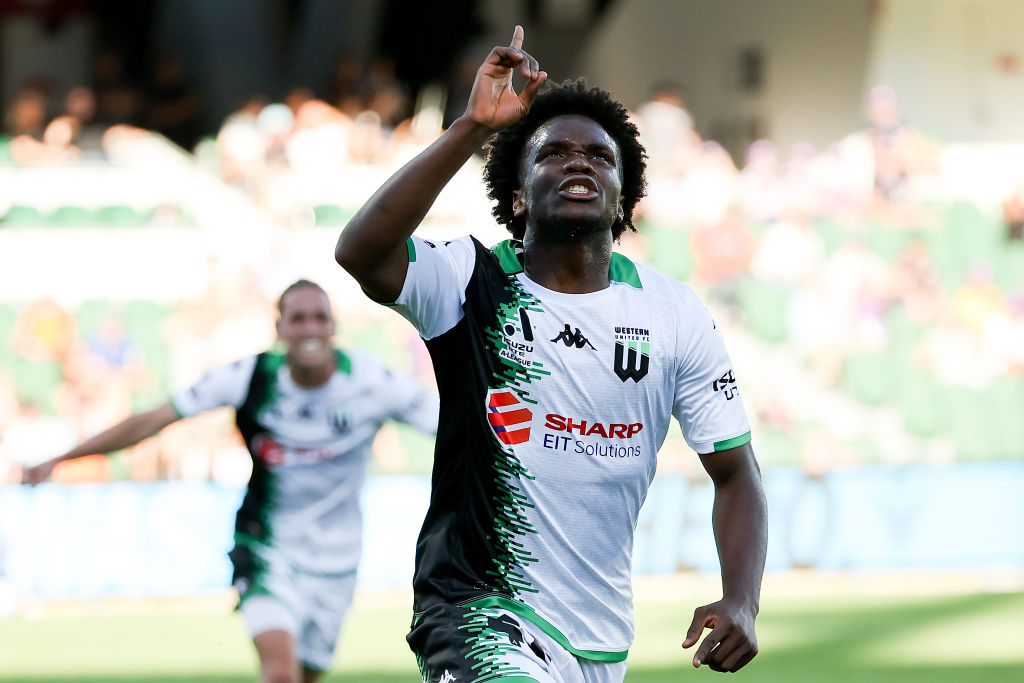
Ferreira’s Western are a force in all aspects. They are not reliant on just one player either.
Abel Walatee and Nicolas Koek have both scored 10 goals, Jake Najdovski has contributed nine, Max Bisetto has added eight, Mark Leonard six, while Luke Vickery and Oli Lavale have five and four respectively.
“Last year, it was mainly our wingers who scored. Now you’re getting goals from our striker, wingers, numbers 10s, number sixes also. Last year that wouldn’t have happened,” Ferreira said.
“It’s a credit to them. If I’m analysing us like I analyse the opposition, I’m probably worried about us now the way we build up and the amount of goals we’ve scored from our build up. Not just building up and keeping the ball for the sake of it. We’ve actually scored I think mid-season 30% of our goals came from our build up. Now we’re also super dangerous in transition.
“All these different moments in the game, a lot of teams are sitting off us deep. So we’re able to break teams down. We’ve improved in every area.”
But this goes well beyond results for Western United’s youth team. This is about development and providing a pathway to the senior side of the 2021 Isuzu UTE A-League champions.
There were 11 debutants for the club in 2023-24 – Max Bisetto (Australia Cup only), Lavale, Najdovski, Matthew Grimaldi, Zach Lisolajski, Jordan Lauton, James York, Charbel Shamoon, Vickery, Khoder Kaddour and Walatee.
Since last season, eight scholarship contracts have also been handed out to Grimaldi, Lavale, Michael Vonja, Vickery, Khoder Kaddour, Walatee, Luka Coveny and Dylan Leonard.
Five Academy players have signed their first pro contracts heading into next season.
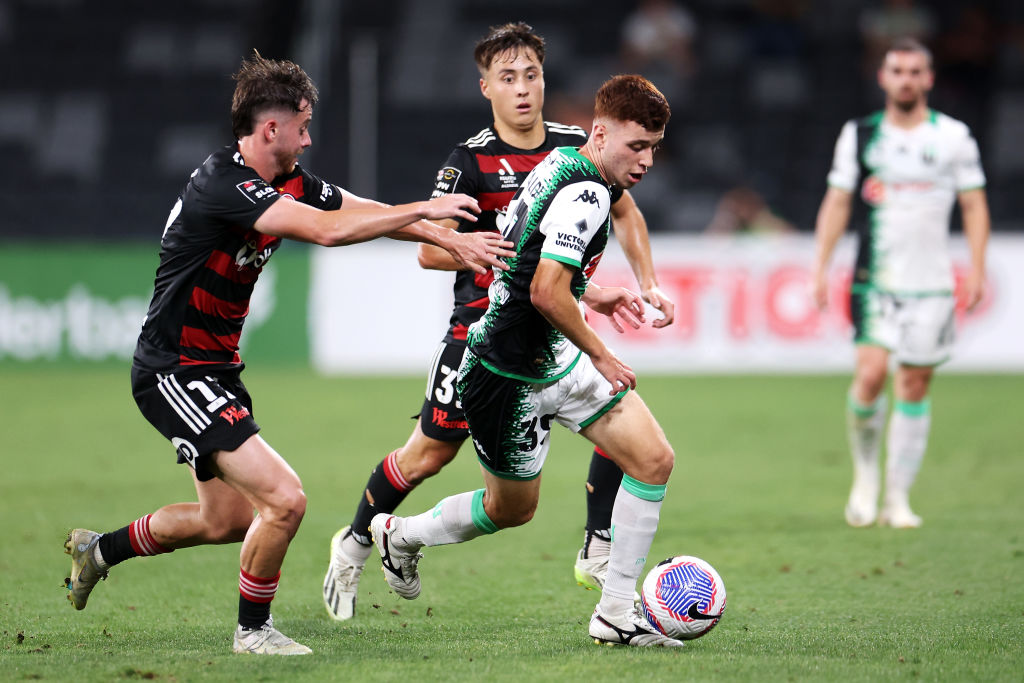
“When you’re in the youth space… everyone wants to win games, you don’t want to lose games. But for me, if I could make sure another four players got scholarships over getting promoted, then I’d sign on the paper,” said Ferreira, who also serves as one of John Aloisi’s assistants after Vincenzo Ierardo’s move to Chinese Super League champions Shanghai Port.
“Yes we want to get promoted because we want to play against better opposition, we want our U21s to also be pushed.
“But my job is to develop players and helping them get chances, whether it’s here at Western United or elsewhere.
“… To me, we easily have another handful of players that if there was opportunity to give more scholarships, then there might still be but they’re also knocking on the door.”
Ferreira added: “What people don’t remember is we haven’t had our full academy set up – I think it’s the second year. Now all of a sudden, the kids are getting younger. We have a 2009 born (player), who is 14, training with us and I could easily chuck him in to play for us on the weekend. It’s just about waiting for the correct moments.
“We’re going to see even more players come through our Academy. Not only have we already got great players in the Academy, but with the opportunities being given to other players and the football we’re playing, it’s going to attract more players. We’re going to keep developing players.
“Give it another 3-4 years… I think the quality that’s going to come through is scary. It’s actually scary because you’re already seeing what’s coming through in such a short space of time.”
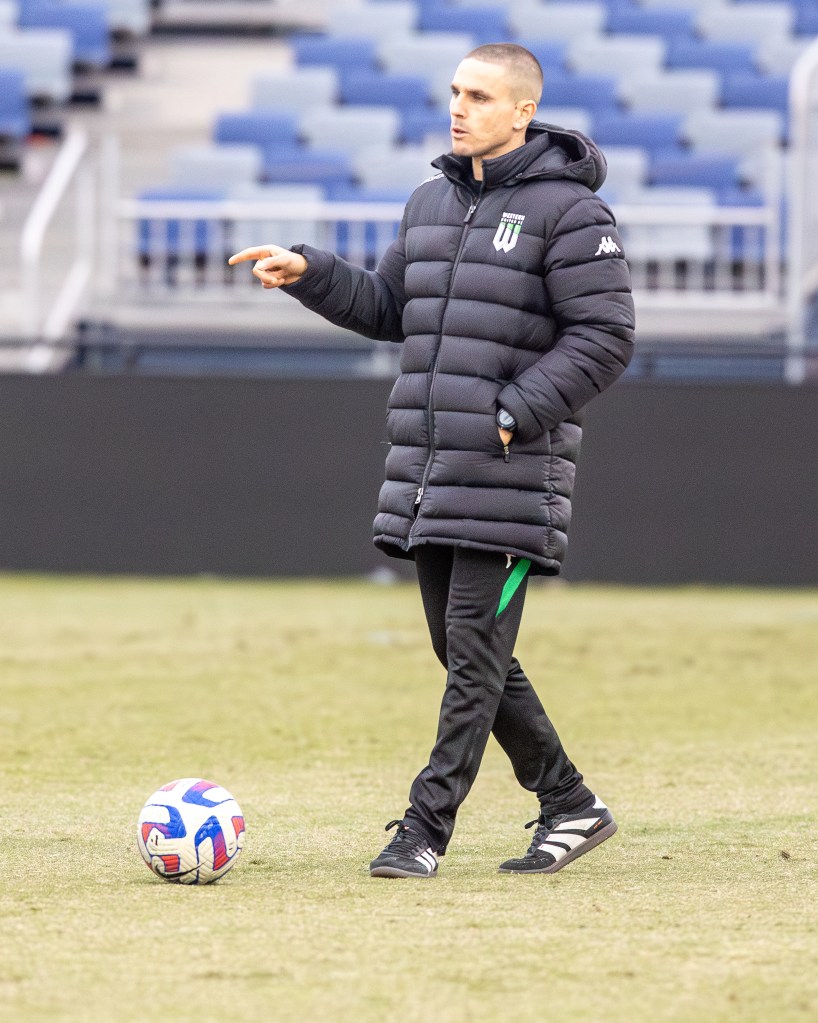

This is all part of Ferreira’s coaching journey. One he always knew he would embark on, even as a player.
A former Porto youth player, the Aussie made 84 A-Leagues appearances for Victory, Roar and Glory. He also played 11 matches for Brisbane in their 2013-14 Championship-winning campaign.
“My wife once said something to me which is true – my footballing career was pretty much an apprenticeship for my coaching career. That’s how I see it,” Ferreira said.
“I feel like all those things I went through, it was just to add to what I think is my real career in coaching. I love trying to create pathways for kids.”
“I remember when I first signed at Melbourne Victory when I was 18. On the school holidays, I used to run holiday programs at Green Gully. I always knew that was the field I wanted to go into.”
Ferreira, like many other Australian coaches, is taking inspiration from trailblazing Tottenham head coach Ange Postecoglou.
He and Postecoglou crossed paths at Victory, where the latter released Ferreira in 2013.
They reunited recently.
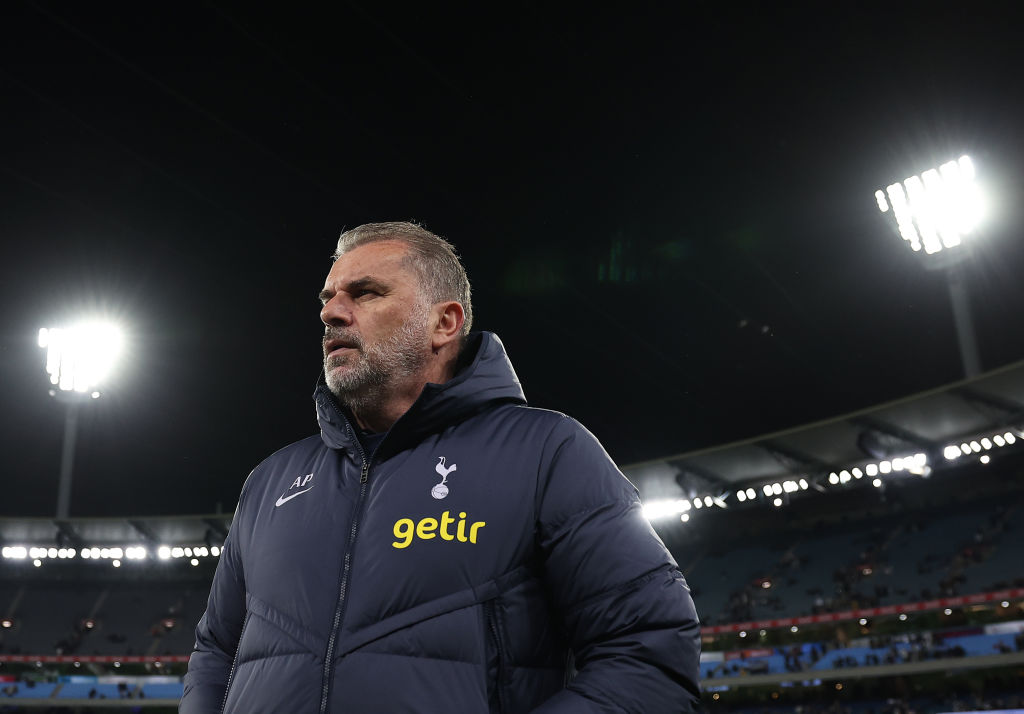
“He is flying the flag for Australian coaches and giving us hope,” said Ferreira.
“It’s funny, I was just on my Pro License and we were on a Zoom with Ange. I asked him a question. Last time I’d spoken to Ange, he was getting rid of me at Melbourne Victory so we had a chuckle over that one. It was good to see him smile too.
“I learnt off every coach. One that remains in my mind is Ernie Merrick because he gave me my debut, my first contract. You don’t forget that. Even him at that time, he was ahead of the game.”
Ferreira is consumed by football as he splits his time between Aloisi’s senior side and Western’s NPL outfit.
“I wish I could say that there’s balance, there’s not really,” he said.
“At the end of the day, I’m speaking to my wife sometimes – I’m listening because I’m good at doing two things at once. But at the back of my mind, I’m thinking about training, about this player. It’s constant.
“Maybe I put extra pressure on myself. No one expects me to run the senior academy in the way I do, but I’m always thinking about the players, staff, everyone, what I can do better, what I can do to help them. I just want to prepare myself that if I was to be chucked into a senior job tomorrow, I’m already doing the things I know will be needed at that level.”





